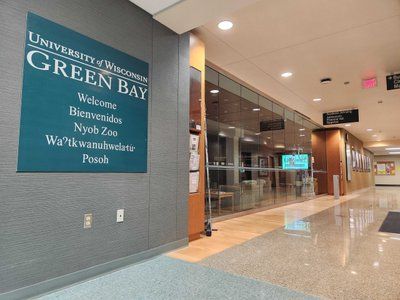Coming during a historic Packers-Bears showdown week, Gov. Scott Walker’s declaration of an economic “border war” against Illinois is more theater than threat. Unless his advisers are recalling a bygone era, Wisconsin’s chief executive is well aware of the following:
- The Chicago economy is the Wisconsin economy, at least for those counties closest to the line. If you live or work in Kenosha, Walworth or Rock, what’s good for Illinois is usually good for southern Wisconsin – and vice versa.
- Even if deficit-ridden Illinois shot itself in the foot this month by raising its income taxes, they’re still lower than similar taxes in Wisconsin.
- Taxes are only one reason why some Illinois companies would consider a move. Labor, real estate and energy costs; access to markets; ease of transportation and regulatory climate matter at least as much.
All that economic reality aside, it’s still pretty good PR for a new governor to throw up some interstate billboards, take an aggressive stance and reassure the home folks that you’re serious about economic growth. If you’re truly “open for business,” you might as well shout it from a few rooftops.
If Wisconsin really wants to nettle its rivals, however, it should strike far beyond the horizon of Illinois to other states that lure away our best and brightest minds, our retirement-age adults and our venture capital. It should also plant more Badger state flags in the ascendant trade nations of Asia, Europe and Latin America – places that will buy our high-quality products. Finally, Wisconsin should also look within its own borders for innovators and entrepreneurs who will contribute far more over time than a handful of pirated companies.
The truth about 21st century economic development is that states matter far less than metropolitan economies and regional economies, such as the Upper Midwest, and that innovation matters most of all in a rapidly changing world.
The recently released report by the Wisconsin Economic Summit, titled “Be Bold: The Wisconsin Prosperity Strategy,” suggests a few core approaches. First, keep investment capital close to home and attract more from elsewhere. Second, encourage well-educated young adults to stay home by offering them more attractive opportunities to do so. Third, focus on the state’s core industries and their supply chains – often called “clusters” – because they bring a competitive edge. Fourth, encourage entrepreneurs to build new companies in Wisconsin.
Entrepreneurism and company creation is vital. A study by John Haltiwanger of the University of Maryland and Ron Jarmin and Javier Miranda of the U.S. Census Bureau concluded that all net job increases came from start-ups during the period between 1999 and 2005.
Wisconsin already has a head start on many states, Illinois included, when it comes to encouraging start-ups. Its investor tax credits were so envied that Minnesota and Illinois essentially copied them last year. Wisconsin also offers ways for entrepreneurs to connect with others like themselves, to write business plans, to get hands-on advice and to locate in technology parks or incubators that help their companies grow.
By the way, Wisconsin is also home to some of the nation’s leading idea factories – its major research universities and colleges.
Firing a few shots across the bow of Illinois can’t hurt, but no one should be misled into thinking that’s a comprehensive economic strategy. For Wisconsin to prosper, it must continue to generate world-class ideas, educate competitive workers, build new companies in emerging sectors and nourish its historic industry clusters.
If all that happens, Wisconsin won’t need signs at the Illinois border. It will need “greeters” to welcome all the capital, talent and companies in search of opportunities.
Still is president of the Wisconsin Technology Council. He is a co-author of “Be Bold: The Wisconsin Prosperity Strategy,” which can be read at www.wisconsintechnologycouncil.com





